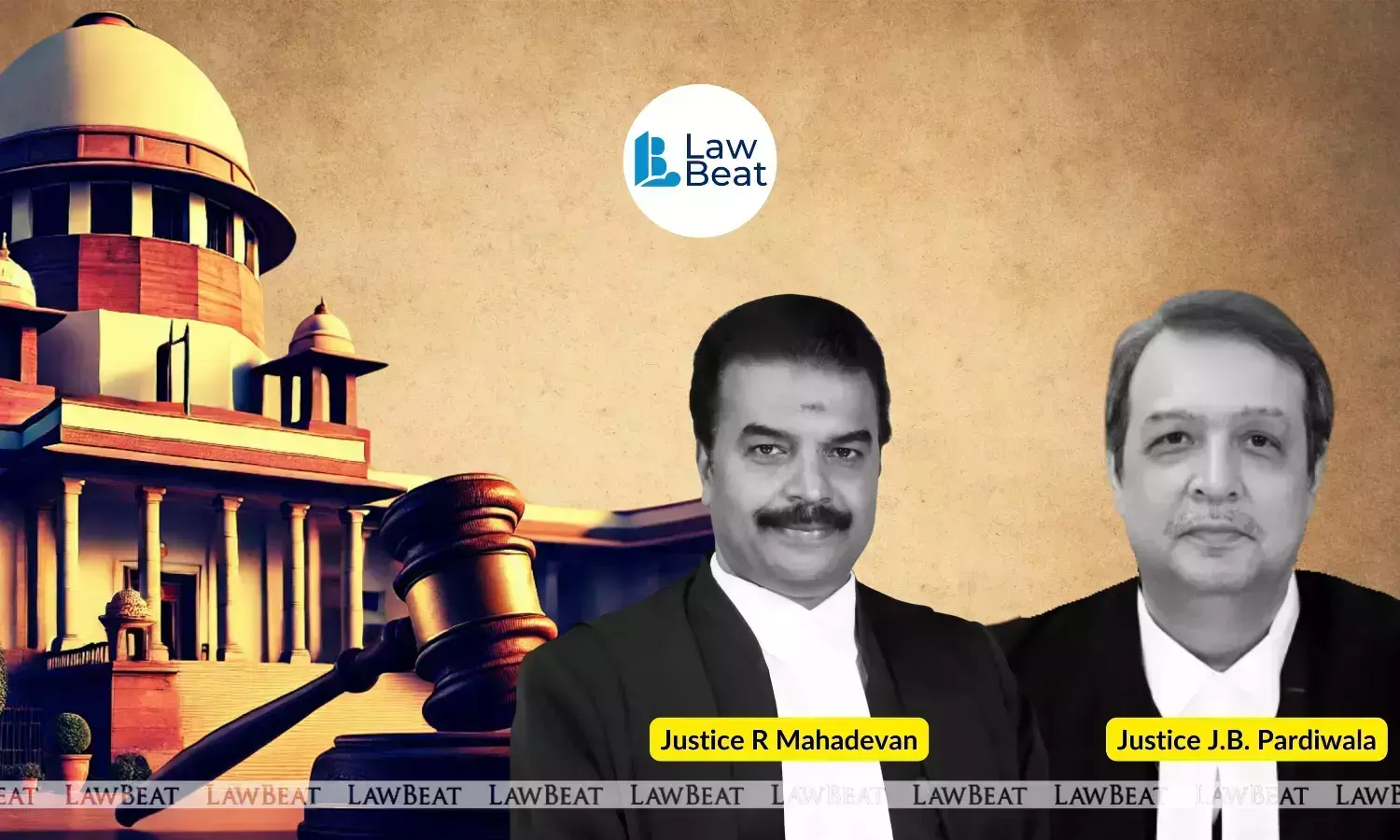SC Raps Allahabad HC for Ignoring Settled Law on Suspension of Sentence in Fixed-Term Conviction

The Supreme Court sets aside a Karnataka High Court order that had condoned a nearly 11-year delay by a government agency
The Supreme Court has recently held that appellate courts must liberally consider pleas for suspension of sentence in cases involving fixed-term imprisonment, unless exceptional circumstances exist.
Setting aside an order of the Allahabad High Court which had rejected such a plea, the Court observed that failure to apply this settled principle renders the statutory right of appeal “an exercise in futility.”
The judgment was delivered by a Division Bench comprising Justices J.B. Pardiwala and R. Mahadevan, which allowed the appeal filed by the convict and remanded the matter back to the High Court for fresh consideration. In doing so, the Court made sharp remarks on the High Court’s reasoning:
“Such errors creep in at the level of the High Court only because the well-settled principles of law on the subject are not applied correctly. It is very important to first look into the subject matter, then the issue involved, and finally the plea of the litigant before applying the correct principles of law,” the bench noted.
Emphasising that the sentence in question was of a limited duration, four years, the Court stated that if the appeal were not to be heard in the near future, allowing the sentence to run without suspension would defeat the very purpose of the appellate remedy.
The Court cautioned that the High Court’s failure to weigh this dimension amounted to a “travesty of justice.”
Reliance was placed on Bhagwan Rama Shinde Gosai v. State of Gujarat (1999) 4 SCC 421, where it was held that when a convict is sentenced to a fixed term and files a statutory appeal, suspension of sentence should be considered liberally.
The bench also cited Omprakash Sahni v. Jai Shankar Chaudhary (2023) 6 SCC 123, reiterating that while in cases involving life imprisonment or statutory bars the test may differ, in fixed term cases, courts must adopt a pragmatic approach, especially when appeals are unlikely to be decided expeditiously.
The case arose from the conviction of Aasif @ Pasha by a Meerut trial court under Sections 7 and 8 of the POCSO Act, Sections 354, 354Kha, 323 and 504 IPC, and Section 3(1)(10) of the SC/ST Act.
He was sentenced to four years of rigorous imprisonment, the maximum term imposed, with lesser concurrent sentences under other provisions. His appeal against conviction is pending before the High Court.
During the pendency of the appeal, the appellant moved an application under Section 389 of the CrPC seeking suspension of sentence. However, the Allahabad High Court, by its order dated May 29, 2025, dismissed the plea, observing that the nature of the offence was “not only immoral but also heinous,” and that no “good or sufficient ground” had been made out for suspension.
The Top Court found this approach to be legally flawed.
It held that instead of conducting a legal evaluation of whether suspension was warranted under Section 389 CrPC, the High Court merely reiterated the prosecution's case and relied on the gravity of the offence, without examining whether the appeal could be rendered infructuous due to delay.
“The High Court should have been mindful of the fact that the appeal is of the year 2024 and not likely to be taken up in the near future. Ultimately, if four years are to elapse in jail, the same would render the appeal infructuous,” the bench observed.
Accordingly, the bench set aside the impugned order and remanded the matter to the High Court with a direction to reconsider the suspension plea afresh in light of the governing principles, and to pass an order within 15 days.
Case Title: Aasif @ Pasha v. State of U.P. & Ors.
Date of Judgment: August 6, 2025
Bench: Justices J.B. Pardiwala and R. Mahadevan
